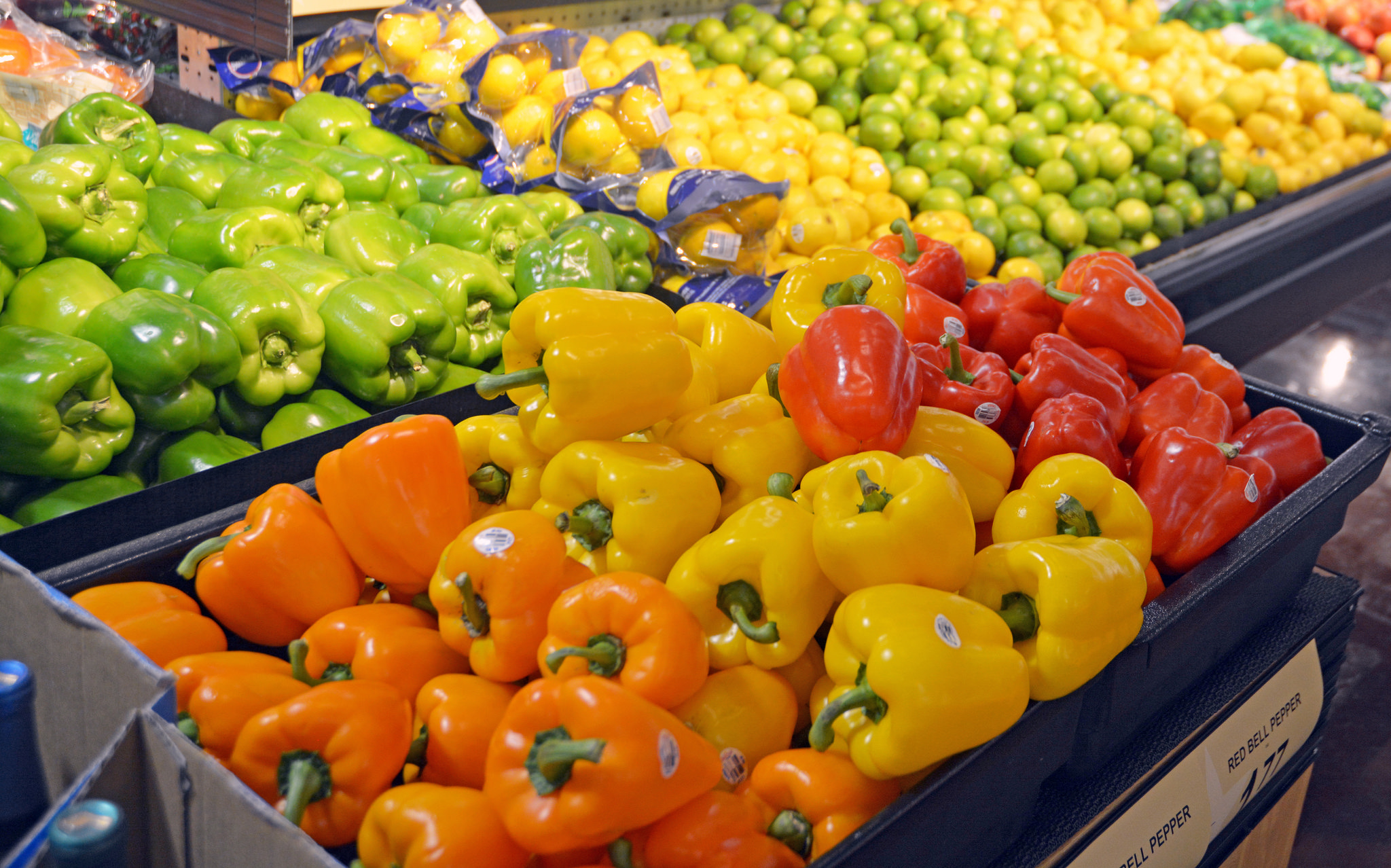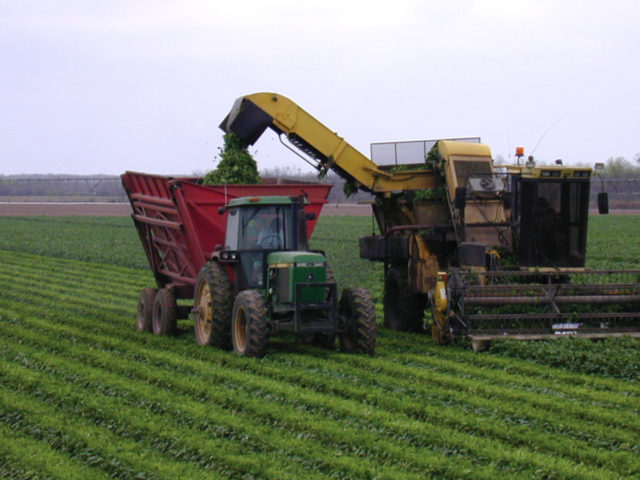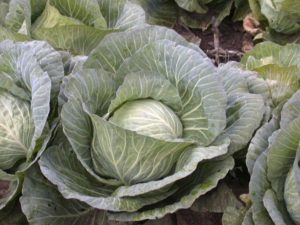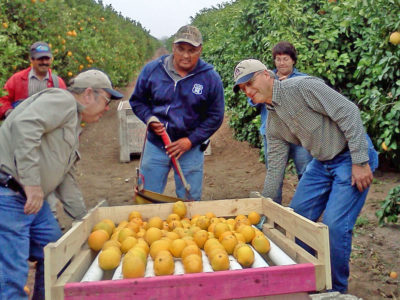
The specialty crop sector in Texas — consisting primarily of fruits and vegetables — has been one of the hardest hit sectors of agriculture due to the COVID-19 pandemic, according to agricultural economists, industry groups and agricultural producers.
“Most fruits and vegetables are consumed when fresh and are highly perishable commodities,” said Joe Outlaw, Ph.D., Texas A&M AgriLife Extension Service agricultural economist and co-director of the Agricultural and Food Policy Center, AFPC, at Texas A&M University, College Station. “As a result of the COVID-19 pandemic, the closure of most restaurants and schools has caused a major reduction in demand for produce. The pandemic has also caused significant disruptions to the supply chain and agricultural systems.”
Outlaw said while some of that reduction in demand from restaurants and other food-service outlets has translated to higher demand at grocery stores, different packaging requirements, changes in volume needed, other factors are affecting fresh produce prices, mainly at the farmgate level.
A recent report by the AFPC on how the COVID-19 pandemic has negatively affected Texas agricultural production indicates if the pandemic persists, Texas fruit and vegetable producers could be left without outlets for their highly perishable products and ultimately lose more than $397 million.
Fruit and vegetable producers in South Texas have experienced anywhere between a 20% to 50% reduction in sales. Additionally, imports of fruits and vegetables from Mexico went down 18% in April, so the demand is still low for both domestic and imported produce.
Many producers are struggling to find outlets for their produce and many grocery stores have significantly reduced the variety of items they stock, both of which have had a serious impact on Texas specialty crop producers.
Components of the ‘perfect storm’
“Overall, due to COVID-19, the short-run outlook for specialty crop producers in Texas is complicated,” Outlaw explained. “The sudden loss of most food-service outlets for highly perishable products along with good winter production of fruits and vegetables in the state is causing low prices across most fresh produce commodities. Changing consumer purchasing habits at the grocery store, demand uncertainty and labor shortages have created the perfect storm for specialty crop producers in Texas and throughout the U.S.”
The COVID-19 situation has had an impact on almost all aspects of agricultural production systems, including those affecting specialty crop producers,” said Daniel Leskovar, Ph.D., Texas A&M AgriLife Research vegetable physiologist and director of the Texas A&M AgriLife Research and Extension Center in Uvalde.

“In the Texas Winter Garden, specialty crop producers have had to deal with supply chain disruptions, lower demand, social distancing restrictions, labor shortages and other factors that have kept them from getting their products from the farm to the table,” he said.
Leskovar noted while growing conditions in the state’s Winter Garden area bode well for most specialty crops already in the ground, these factors will likely continue to affect producer profitability for some time to come.
“Right now, we’re down to about 50% production,” said Brandon Laffere, co-owner of L&L Farms in Batesville, which produces lettuce, cabbage, spinach, broccoli and other specialty crops. “We took the biggest hit with lettuce since that is more perishable and our food service outlets weren’t ordering it.”
Now, Laffere said, they are growing summer crops, including squash and watermelon, but are still uncertain as to how much of those they will be able to sell once harvested.
“Our biggest challenge is the unknown, but we’re optimistic things will get better,” he said.
A major shift in marketing direction
“Practically overnight, producers lost 40% of their outlets, and many producers had to destroy their crops because there was no place to sell them. Now producers are waiting to see how much of their current crop they may be able to salvage and how much they may have to plow under.”
Dante Galeazzi, CEO and president of Texas International Produce Association
Reduced demand combined with good domestic winter fruit and vegetable production have driven down specialty crop prices in South Texas.

“We’re seeing less competition from Mexico on fruits and vegetables due to the COVID-19 pandemic, which would normally be considered good news for specialty crop growers in the Valley,” said Juan Landivar, Ph.D., director of the Texas A&M AgriLife Research and Extension Center at Weslaco. “But lower demand, a lack of labor and logistical issues have negated most positive outcomes for a majority of growers.”
Typically, a large fruit and vegetable producer would sell about 40% of its production to retail grocers, about 40% to restaurants and other food-service outlets, and about 20% to other outlets.
“Practically overnight, producers lost 40% of their outlets, and many producers had to destroy their crops because there was no place to sell them,” said Dante Galeazzi, CEO and president of Texas International Produce Association, Mission. “Now producers are waiting to see how much of their current crop they may be able to salvage and how much they may have to plow under. They also have to decide if they should plant, what they should plant and how much they should plant under changing and uncertain conditions.”

Galeazzi said while many Winter Garden and South Texas producers were able to cut short the harvest season for leafy greens such as kale, lettuce, parsley and celery — getting most of those products to food service outlets before they closed – new crops will have an even less certain future.
“Some producers are hoping to stretch out the season in hopes they will be able to sell to food service outlets once again,” he said. “While grocery stores may be purchasing greater amounts of smaller onions and heads of cabbage, for example, it’s restaurants and other food service outlets that buy the larger sizes. Unfortunately, the increase in retail sales to grocery stores doesn’t come close to offsetting the food-service outlet losses.”
J&B Produce in Edinburgh is now in the process of completing its melon and onion harvest.
“We were fortunate in that we were finished growing and harvesting most of what we produce here in South Texas before the COVID-19 pandemic hit,” said Trent Bishop, vice president of sales and marketing. “But overall, our sales dropped about 20% because the sales we made to high-end restaurants, hotels and even cruise ships suddenly came to a screeching halt. It was even necessary to disc under a few crops, but it could have been worse.”
Bishop said the operation has taken measures to ensure a safe work environment for packing plant workers by having them wear aprons, gloves and face masks, as well as asking them to adhere to social distancing guidelines.
“We have also alternated their breaks to minimize the amount of potential congregating among workers,” he said. “Our administrative staff was able to work from home and just recently returned to the office. We’re all wearing face masks and practicing social distancing.”
“There has always been a shortage of labor in this area and the pandemic has just made it worse. We have had to divert a lot of our labor toward additional cleaning, disinfecting and sanitizing. And while this is all necessary, it has kept available labor from performing other essential tasks, such as harvesting the produce.”
Jimmy Bassetti, co-owner J&B Produce
Jimmy Bassetti, co-owner of J&B Produce, said demand for certain specialty crops they grow — including Swiss chard, parsley, dandelion greens and honeydew melons — has fallen dramatically.
“We’re also facing a labor shortage,” he said. “There has always been a shortage of labor in this area and the pandemic has just made it worse. We have had to divert a lot of our labor toward additional cleaning, disinfecting and sanitizing. And while this is all necessary, it has kept available labor from performing other essential tasks, such as harvesting the produce.”
Bassetti also noted during the pandemic J&B made produce donations to all local food banks, but even that sometimes had its challenges.
“At the outset, many of the food banks were understaffed and were unable to get our products unloaded and into their system for distribution,” he said. “But the community rallied, and after a while there were enough people hired or volunteering, so they were able to handle the increased volume of produce and other food donations being made.”
Unwanted fruits of their labor
Dale Murden, CEO and president of Texas Citrus Mutual in Mission, said while most citrus production in South Texas is now complete, there are still effects from the COVID-19 pandemic.
“Some citrus producers, including myself, even though we have finished the grapefruit growing season, were hampered by reduced food service sales and difficulties in getting our product onto store shelves,” he said. “Many of us have had to take more of our grapefruit to tank farms where it can be processed into juice, bottled and delivered.”

Jim Kamas, AgriLife Extension fruit specialist based in Fredericksburg, said with peaches and blackberries now being harvested, producers will have to find different ways to market their product.
“There likely won’t be the large numbers of people we’re used to coming to the Hill Country and other fruit-producing parts of the state,” Kamas said. “The loss of this foot traffic and previously dependable outlets will affect producers for some time.
He noted the warm January counteracted the number of chill hours the peaches needed, so the crop likely will not be as strong.
“Producers who have stayed on top of things and used growth regulators to compensate say they expect to have 75% to 80% of their normal crop,” he said.
Kamas also noted the COVID-19 pandemic has been especially hard on Texas wineries.
“Wineries and tasting rooms have had to close and many are struggling to stay afloat,” he said. “And the grape growers throughout the state are having to deal with losing that outlet for their product, as well as wondering what future demand might be.”
Strawberry growers have been affected as well. As a result of the COVID-19 pandemic, the popular Poteet Strawberry Festival was postponed from April to Oct. 30-Nov. 1.
“The pick-your-own strawberry operations have seen a significant reduction in traffic and are adjusting by picking the strawberries themselves and selling them in containers,” he said. “But with fewer people and fewer dependable outlets to buy them, they are also facing uncertainty.”
Labor and market uncertainty
A labor shortage mixed with market uncertainty has also kept specialty crop producers guessing, said Luis Ribera, AgriLife Extension agricultural economist, College Station.

“Some producers have experienced up to a 50% reduction in harvesting crews,” he said. “There is also uncertainty regarding the processing of new H-2A nonimmigrant temporary or seasonal job applicants, which means uncertainty about the future availability of H-2A workers.”
Payments under the Payment Protection Program of the U.S. Small Business Administration do not cover H-2A workers.
“The specialty crop situation in Texas is a complicated, one and producers are having to do the best they can to adapt to and try to overcome a number of challenges on multiple fronts,” Ribera said.